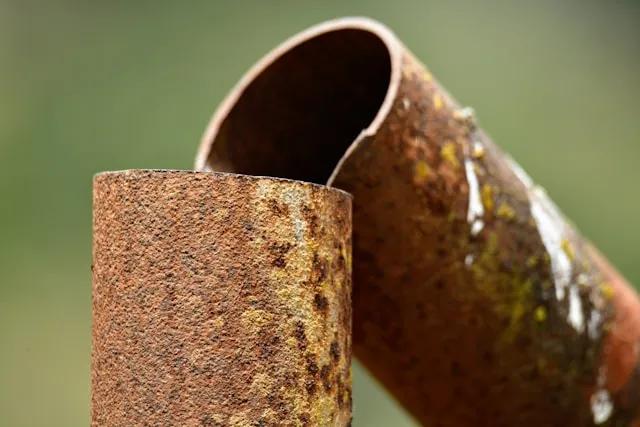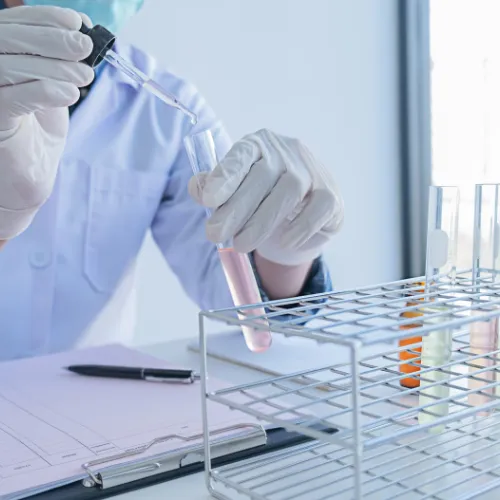
Metals in Water Testing
Detect and mitigate toxic metals in your water supply to protect health and meet compliance standards.

Detect and mitigate toxic metals in your water supply to protect health and meet compliance standards.
Testing for metals in water is essential to protect public health and maintain the integrity of water systems. Common metals found in water include lead, arsenic, cadmium, mercury, and copper, which can pose significant health risks when consumed or inhaled over time.
Metals can enter water through industrial runoff, mining operations, plumbing systems, and agricultural practices. For example, lead and copper can leach from old pipes or soldering, while arsenic and mercury are more commonly associated with industrial pollution and groundwater contamination.
In Ontario, water systems are regulated under Ontario Regulation 170/03 (Safe Drinking Water Act) to ensure safe metal concentrations in drinking water. Regular testing is essential for maintaining compliance with these regulations and ensuring water safety for drinking, cooking, and other daily uses.
Through comprehensive metals testing, we help identify the presence of harmful metals in your water system, assess potential risks, and offer actionable solutions. Our certified sampling and lab analysis ensure that your water is free from harmful metal contaminants, keeping your systems compliant and your water safe for consumption.

Heavy metal contamination is invisible, odorless, and tasteless, making routine testing essential for safeguarding public health. Many contaminants, such as lead and arsenic, accumulate in the body over time, causing irreversible damage before symptoms appear.
Municipal water systems conduct basic testing, but property owners remain responsible for monitoring internal plumbing and private water sources. If metal leaching from pipes, industrial runoff, or natural deposits is a concern, proactive testing is the only way to ensure compliance and safety.
💡 Did You Know? Health Canada’s maximum allowable concentration for lead in drinking water is just 0.005 mg/L, and for arsenic, it's 0.010 mg/L. Even trace amounts can be hazardous over time.
Property managers, landlords, and business owners are required to ensure potable water safety under Ontario’s Safe Drinking Water Act (SDWA). Failure to meet standards for metals in water can lead to:
- Regulatory fines and non-compliance penalties
- Legal liability in cases of tenant or employee exposure
- Costly infrastructure repairs due to corrosion from high metal content
Regular metals testing protects occupants, employees, and business operations, while keeping you compliant with provincial and federal drinking water regulations.
Who Needs Metals Testing:
Property owners with older buildings or corroding plumbing
Facilities near industrial or mining operations
Schools, daycare centers, and healthcare facilities serving vulnerable populations


Our Metals in Water Testing service provides a comprehensive analysis of your water supply, ensuring safe, compliant drinking water for residential, commercial, and industrial properties.
🔹 Step 1: Certified Sampling – A trained technician collects water samples from critical points within your system.
🔹 Step 2: Accredited Lab Testing – Samples are analyzed using industry-standard ICP-MS and ICP-OES methods for precise metal detection.
🔹 Step 3: Actionable Reporting & Recommendations – You receive a detailed report outlining metal concentrations, compliance status, and guidance on filtration or treatment solutions if needed.
By choosing Canadian Water Compliance, you gain peace of mind knowing your water is tested, analyzed, and reported with the highest accuracy and reliability.
Serving across Toronto, Mississauga, Brampton, London, Kitchener, Niagara, St. Catharines, Guelph, Waterloo, Collingwood, Barrie, Wasaga Beach, Midland, Huntsville, Gravenhurst, Minden, Oshawa, Peterborough, Kingston, Ottawa, Scarborough, Markham, Richmond Hill, Vaughan, Burlington, Etobicoke, Pickering, Ajax, Whitby, Caledon, Milton, Hamilton, Oakville and the surrounding areas.